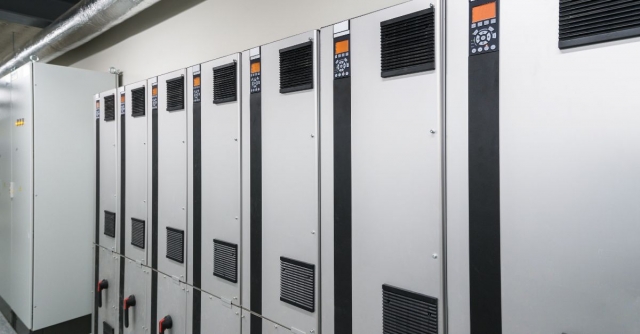Frequency converters are vital to industrial automation and enhance machine performance in several industries. They improve system reliability by providing smooth motor operation and preventing mechanical stress. This guide will outline what frequency converters do, their common applications, and the benefits they bring to industrial operations.
What Frequency Converters Do
Frequency converters convert the frequency of an electrical current to regulate the speed of industrial machine components. They typically regulate the speed of motors controlling pumps and fans.
By controlling the motor’s speed and torque, frequency converters enhance the performance and efficiency of industrial machines while allowing for smoother operation, reduced energy consumption, and increased equipment lifespan.
Common Applications of Frequency Converters
Frequency converters play similar roles across various industrial settings to enhance equipment performance and energy efficiency. Let’s explore some examples of industrial applications of frequency converters.
Manufacturing
In the manufacturing sector, frequency converters control the speed of conveyor belts and support precise timing and coordination in assembly lines. This improves production efficiency by allowing machines to operate at optimal speeds for different processes.
Mining
Large machinery demands precision for mining for the safety and efficiency of operations. Frequency converters regulate the speed and torque of motors used in heavy-duty equipment, such as draglines, excavators, and haul trucks.
Agriculture
Modern agriculture involves extensive use of equipment, such as irrigation pumps, ventilation systems, and conveyors. Frequency converters optimize motor speed, reduce energy consumption, and improve productivity in these systems.
Benefits of Frequency Converters in Industrial Operations
Let’s dive deeper into the benefits of frequency converters in industrial operations.
Energy Efficiency
Frequency converters improve the energy efficiency of machinery. By adjusting motor speed to match the required load, they reduce energy consumption, leading to lower operational costs and a reduced carbon footprint.
Improved Motor Performance
The variable frequency output of converters enhances motor control and performance. It also allows for smooth speed acceleration and deceleration while reducing mechanical stress on the motor and extending its lifespan. Additionally, advanced frequency converters can monitor motor health and detect issues so that operators can prevent costly breakdowns.
Long-Term Cost Savings
The reduction of maintenance and replacement costs is a long-term benefit of frequency converter use. By operating motors at optimal speeds, frequency converters minimize wear and tear and extend the lifespan of industrial equipment. This leads to substantial cost savings over time.
Frequency converters are indispensable tools in modern industrial applications. Professionals must stay informed about the latest advancements in frequency converter technology to take full advantage of these benefits. Explore how frequency converters can transform your industrial operations, and take the next step in optimizing your processes today.






